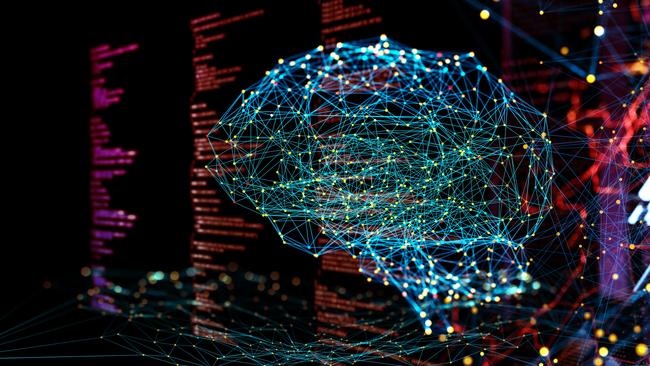Australians less trusting of AI than most countries
A worldwide study finds just 30 per cent of Australians believe the benefits of using artificial intelligence outweigh the risks, the lowest ranking of any country.

Just 30 per cent of Australians believe the benefits of using artificial intelligence outweigh the risks, the lowest ranking of any country, according to a comprehensive global study into the public’s trust, use, and attitudes towards AI.
Australians also rank lowest globally in their interest in learning more about AI. While half of Australians used AI regularly, only 36 per cent were willing to trust it, with 78 per cent concerned about negative outcomes.
Australians also have among the lowest levels of AI training and education, with just 24 per cent having undertaken AI-related training or education compared to 39 per cent globally.
The study at the University of Melbourne was led by chair of trust at Melbourne Business School, Professor Nicole Gillespie and Dr Steve Lockey, research fellow at the school, in collaboration with KPMG.
It surveyed 48,340 people across 47 countries between November 2024 and January 2025, using representative sampling.
Australia ranks among the lowest globally on acceptance, excitement and optimism about AI, alongside New Zealand and the Netherlands, and lags other countries in realising AI’s benefits – 55 per cent report experiencing benefits compared to 73 per cent.
Unions have vowed to pursue pay rises and cuts to working hours where companies win productivity gains from adopting artificial intelligence, and will press for new collective bargaining rights and stronger obligations on employers to consult with workers before introducing AI.
ACTU secretary Sally McManus has said AI represented a “very big threat” to workers and policy action was needed to ensure employees shared the benefits, including wage increases and shorter working hours.
Workplace Relations Minister Murray Watt has also declared that Australians do not want “robots making arbitrary decisions about workers’ livelihoods”, and called on employers to consult with their employees before introducing “highly intrusive” performance management technology.

Professor Gillespie said the public’s trust of AI technologies and their safe and secure use was central to their acceptance and adoption.
“Yet our research reveals that 78 per cent of Australians are concerned about a range of negative outcomes from the use of AI systems, and 37 per cent have personally experienced or observed negative outcomes ranging from inaccuracy, misinformation and manipulation, deskilling, and loss of privacy or IP,” she said.
Given the low level of AI training and education, more than 60 per cent said they had low knowledge of AI, compared to 48 per cent globally. Less than half believe they had the skills to use AI tools effectively, in contrast to 60 per cent globally.
Professor Gillespie said an important foundation to building trust and unlocking the benefits of AI was developing literacy through accessible training, workplace support, and public education.
“AI literacy consistently emerges in our research as a crosscutting enabler: it is associated with greater use, trust, acceptance, and critical engagement with AI output, and more benefits from AI use, including better performance in the workplace,”
Two thirds of Australians report their employer uses AI, and half of employees say they are intentionally using AI regularly, with workers reporting increased efficiency, effectiveness, access to information and innovation.

But the use of AI at work is also creating complex risks for organisations, with 48 per cent of employees admitting to using AI in ways that contravene company policies, including uploading sensitive company information into free public AI tools like ChatGPT.
The study found 57 per cent rely on AI output without evaluating accuracy, and 59 per cent are making mistakes in their work due to AI. Many employees acknowledge they are hiding their use of AI at work and presenting AI-generated work as their own.
Professor Gillespie said “psychological safety” around the use of AI in work was critical.
“People need to feel comfortable to openly share and experiment with how they are using AI in their work and learn from others for greater transparency and accountability,“ she said.
A lack of clear organisational guidance could be a factor in the inappropriate use. While generative AI tools are the most widely used by Australian employees (71 per cent), only 30 per cent said their organisation had a policy on generative AI use.

KPMG Australia chief digital officer John Munnelly said the combination of rapid adoption, low AI literacy and weak governance is creating a complex risk environment.
“Many organisations are rapidly deploying AI without proper consideration being given to the structures needed to ensure transparency, accountability and ethical oversight – all of which are essential ingredients for trust,” he said.
More than three-quarters of those surveyed expressed support for AI regulation, with just 30 per cent saying current laws, regulation and safeguards were adequate to make AI use safe.
Eighty three per cent said they would be more willing to trust AI systems when assurances were in place, including adherence to international AI standards, responsible AI governance practices, and monitoring system accuracy.
“The research reveals a tension where people are experiencing benefits but also potentially negative impacts from AI,” Professor Gillespie said.
“This is fuelling a public mandate for stronger regulation and governance and a growing need for reassurance that AI systems are being used in a safe, secure and responsible way,” Professor Gillespie says.
Mr Munnelly said there was a “striking opportunity” for industry and government to foster trust in AI by building on the existing voluntary AI safety standards and ensuring local safeguards expand in line with emerging international laws and regulations.
He said organisations also needed to invest in the training and development of their employees.








To join the conversation, please log in. Don't have an account? Register
Join the conversation, you are commenting as Logout